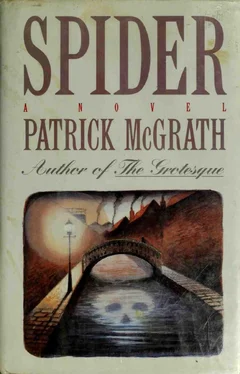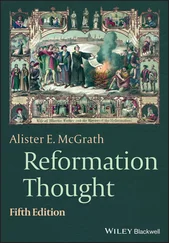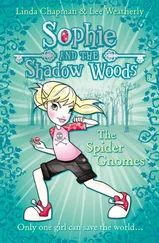Oh I tear my eyes away, I turn my back on the massive domes, their flaking rust-red paintwork horribly vivid in the morning sunshine and their crisscross struts and uprights multiplying endlessly over my head; horror is here, the horror of reproduction, so with eyes averted I shuffle off. I must go home, I tell myself, I must go home, I must go home to Kitchener Street, where my mother is waiting for me by the back door.
Now the streets are achingly familiar and memories rise in clusters from the deep forgotten recesses of my mind and I become uncoupled for minutes on end and have to lean against a wall and with fumbling fingers try and roll one, and the worm in my lung seems to be stirring. A woman with a string bag bulging with parcels wrapped in brown paper and tied with string stands in front of me and asks me am I feeling poorly? I push myself off the wall and lurch away. I must go home to my mother! Then I am coming down Victory Street and not this corner, not the next, but the one after is Kitchener Street. Listen to them now! What a filthy racket! But on he comes, the game old Spider, flannels flapping on newspaper limbs, thirty yards, fifteen—oh a great pounding in my chest now, the worm awakens, and then I am at the corner, and turning the corner, and gazing at—
Nothing. A fence of corrugated tin. What is happening to me? Through a gap in the fence I see a cratered wasteground. It is strewn with heaps of brick and rubble, and weeds with purple flowers, and here and there lengths of black rubber piping, rusty tin cans, old shoes, car tires. What is happening to me? Gales of laughter, a barking dog. Is this my doing?
Back at my table now. Badly shaken by what I saw this morning, very fragile, very brittle. I had plunged down the street in wild panic, reeling from lamppost to lamppost like a drunkard until I reached where number twenty-seven ought to be. A hole in the fence: I’d pressed my eye to it and found another hole, a shallow pit littered with chunks of brick, slate, lumber, rubbish, the same purple-flowered weeds bristling in the breeze; and a voice had said: this is your doing.
And then, as I leaned against the fence, helpless and weeping, a smell had come, and then a memory, dislodged from the underside of some deep flap of my mind: I saw myself sitting at the window of my room above the kitchen, watching Horace and Hilda leave for the pub. Then I saw myself walking slowly down the stairs, along the passage, and into the kitchen. I saw myself attach my trapline: I tied one end of the string to the screw on the knob of the gas stove, then led it carefully through the staple and under the door and out into the passage to the nail in the side of the staircase. From halfway up the stairs I gently pulled it round the nail and then, climbing to the top of the stairs, I tied it to a banister. Then I went back into my room and waited for their return.
I saw myself again sitting at the window with the light off.
I remember there was a sort of buzzing in my ears that drowned all other sounds, so that when Horace and Hilda returned they seemed to be weaving down the yard in utter silence, and in slow motion; their movements were clumsy and uncoordinated, and I had to stuff a blanket in my mouth to stifle the wave of laughter the spectacle provoked in me. Finally they reached the back door and came in; I heard loud voices for some minutes, and then Hilda’s slow heavy tread on the stairs, Hilda’s alone. This produced a silent cry of exultation in the tense young Spider, how hard it was to stifle my laughter then! I waited, for five minutes, ten minutes, twenty-five minutes—twenty-five minutes that felt like twenty-five years! Then I crept silently out of my room: the house was dark and silent, the kitchen door was closed. Barely daring to breathe I sat at the top of the stairs and untied my string from the banister. Gently, oh gently I reeled it in; in my mind’s eye I saw it grow taut from knob to staple, from staple to nail, and from nail to me; I held it a long moment, thinking: my string in my fingers, his life in my hands. Then I tugged—it moved—enough. I tied the string to the banister and slipped back into my room.
Sleepless with triumph I sat cross-legged on my bed in the darkness. I rocked with silent laughter. Then slowly, slowly from below, at last there rose to my eager, waiting nostrils the faint but unmistakable smell of gas—
Yes, this was my doing all right. I’d pushed myself off the fence; the panic had subsided and I felt strangely calm (though in all the excitement the worm in my lung had awoken). I noticed then that the even-numbered houses on the other side were intact, though their windows were boarded up; and that there were buildings still standing on this side down the end.
I moved on, steadier now, I set my course for the end of the street. There I found three houses: number fifty-three, boarded up; number fifty-five, also boarded up; and the Dog and Beggar. The Dog and Beggar! I leaned against the wall and I laughed, yes, imagine that, imagine your old Spider at this point leaning against a wall with his big chin lifted high and giving out a brief hoarse wheeze of silent laughter. But after a moment or two he pushed himself off the wall, shuffled up to the door of the public bar, and went in.
The door swung shut behind him. Nothing had changed. It was eleven o’clock in the morning and cold sunshine washed in from the window by the door. A small coal fire was burning in the grate, and at the table close by sat an old man with a glass of beer, otherwise the room was empty. The wooden floor, the mirror over the mantelpiece, the brass rail at ankle height under the chipped old bar—nothing had changed here. The smells of the old man’s pipe, last night’s beer, the crackle of burning coal; on the bar a newspaper folded to the sports page... In shuffled the Spider and sank onto a chair near the door. All was still and silent; dust danced in the streaming wintry sunlight and a clock ticked somewhere off behind the bar.
Spider sat as though entranced and listened to the ticking clock, watching the motes of dust. A man appeared behind the bar, polishing a glass on his apron. It was him! It was Ernie Ratcliff! The same thin hands, the same narrow eyes, the same air of weasel cunning, though the hair was sparser now, the bitterness was etched deeper in the lines of the face. He glanced at Spider: “What’ll it be?” he said. Spider gazed at the man. Ernie Ratcliff—one of the last people to see his mother alive! “Looking for your old man, Mrs. Cleg? He was here but I believe he’s gone.” Almost the last friendly words she’d heard, and not so friendly at that, Ratcliff was never what you’d call a friendly man. “What’ll it be then?” he repeated, setting down the polished glass and wiping his hands on his apron. Spider shuffled to his feet and dug through his many pockets, unearthing a few coppers, a threepenny bit, some halfpennies. He came to the bar and spilled the coins onto the counter. Ratcliff glanced at them and wordlessly reached for a glass.
Spider sits by the door with a half of mild. Nothing happens. A second old man joins the first, they murmur to one another and then fall silent. Spider examines the pattern on the frosted glass partition; it suggests to him a leafy plant of some kind, the flowering sprout of a root vegetable, a turnip perhaps. Yes, this was his doing, gelc sinned all right. He tries the beer—an immediate hiss of distaste from the lung-worm, a flurry of activity among the spiders. He remembers his mother’s story about the spiders in the elm trees, and thinks of his own insides, and the creatures that have hatched there. I am an egg-bag, he thinks, and I should be dangling by a thread from a branch. He sits there in the warmth until half past three, when Ernie Ratcliff kicks him out.
Читать дальше












